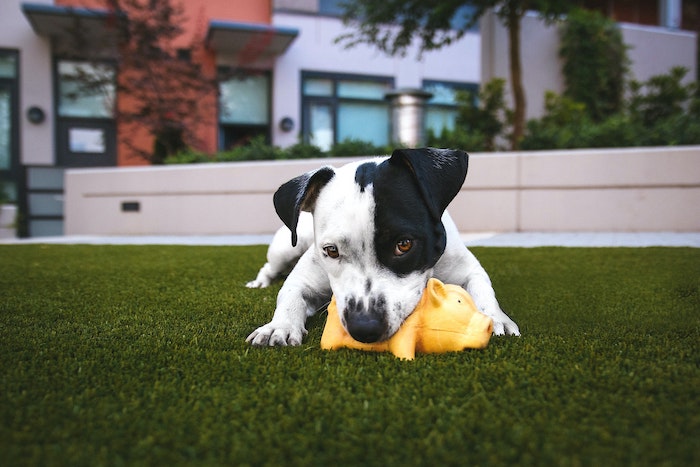CBD oil is derived from the marijuana plant. Marijuana Plant is a popular non-psychoactive substance with potential therapeutic uses for pets. It can help to calm and center dogs and be part of a balanced cat routine.
Before introducing CBD to your pet, you must conduct research, understand its mechanisms, and choose high-quality products is essential.Dogs have cannabinoid receptors that interact with CBD molecules, primarily in the intestines, and transmit signals to other physiological systems.
However, more research and guidance from regulatory agencies are needed to determine the safety and appropriate dosage of CBD use in pets. This article will discuss the benefits, safety, dosage, and recommended products for CBD oil use in pets.

What is CBD for Pets?
CBD for pets, derived from the hemp plant, is a compound available as CBD oil or treats specifically designed for dogs and cats. It is essential to understand the difference between CBD and THC, as well as relevant laws, to assess its safety.
CBD helps pets in a similar way to how it helps humans. It interacts with the endocannabinoid system, which regulates various physiological functions in the body. CBD can help promote relaxation, reduce anxiety, relieve pain and inflammation, improve appetite, and support overall pet well-being.
Like CBD for humans, pet CBD does not produce psychoactive effects or the feeling of being “high,” as it contains minimal to no THC (the psychoactive compound found in marijuana). Pet CBD ensures the safety of pets and eliminates the risk of intoxication.
It is important to note that the legal status of CBD for pets may vary depending on your location. It is crucial to familiarize yourself with local laws and regulations regarding the use of CBD for pets to ensure compliance and the well-being of your furry companions.
How is CBD Oil Safe for Dogs?
Like all humans, dogs metabolize CBD through their endocannabinoid system (ECS), allowing them to experience comparable wellness benefits to those observed in humans using these products.
Although formal studies are still in progress, many pet owners confidently affirm the safety of CBD oil for dogs. Dog owners incorporate CBD into their pets’ routines for various reasons.
Some integrate it as a regular component of their pet’s daily health regimen, considering products from cbdnorth trusted cbd brand. In contrast, others have reported its efficacy in helping dogs like Sparky cope with everyday stressors such as noise aversion or separation issues.
Regardless of the motivation, CBD for dogs can be a wholesome addition to promote your pet’s active and healthy lifestyle. Issues often arise from administering a vast daily dose to your pet. The appropriate CBD amount is weight-dependent, necessitating careful attention to quantities and vigilant monitoring of their responses.
Potential adverse effects include increased thirst or dry mouth, drowsiness, and low blood pressure. If your Dog seems excessively thirsty or experiences dry mouth after initiating a CBD routine, it could indicate an overly large daily dosage, prompting the need for reduction or discontinuation. In such cases, consult your vet.
While some dog owners may desire the calming effect of CBD leading to drowsiness, excessive lethargy or disengagement could suggest an overdose. Striking the right balance is essential, ensuring your pet feels at ease while maintaining their distinctive personality and sufficient energy for play.
CBD’s ability to lower blood pressure might result in brief dizziness for your pet. Adhering closely to recommended servings and closely monitoring your pet upon CBD introduction is imperative. If any concerning trends emerge, prompt consultation with your veterinarian is advised.

Potential Health Benefits of CBD Oil for Dogs
Joint Problems in Dogs (Arthralgia):
For dogs experiencing joint problems, conventional medications like NSAIDs or Gabapentin may be prescribed by vets. However, NSAIDs pose risks of joint and soft tissue deterioration, along with potential liver damage, while Gabapentin can lead to kidney issues and is not highly effective.
CBD, a natural anti-inflammatory, by binding CB1 receptors to the brain, stimulates the immune system to reduce inflammation and alters the brain’s response to pain. CBD also binds to CB2 receptors, prompting the body to produce more cannabinoids naturally, further reducing inflammation and associated pain.
Research from Cornell University supports the effectiveness of CBD for arthritis in dogs, showing increased activity and decreased pain. Common reasons people purchase CBD oil for dogs with joint issues include arthritis, hip and elbow dysplasia, sprains, strains, and torn ligaments (CCL).
Cancer Treatment:
Sadly, 50% of adult dogs will get cancer, posing a substantial health challenge, especially during chemotherapy or radiation. Researchers are actively exploring innovative ways to address cancer pain and nausea, with CBD emerging as an extensively researched cancer-fighting substance.
CBD oil exhibits cancer-fighting capabilities, slowing tumor growth and enhancing the sensitivity of cancer cells to treatment.
CBD disrupts cancer cells’ energy production, induces immune system stimulation for producing killer cells, and blocks the GPR55 receptor linked to increased cancer cell growth.
Moreover, CBD oil has proven to alleviate cancer treatments and significantly reducing associated pain, offering a promising avenue for holistic cancer care in dogs.
Seizures and Epilepsy:
Around 5% of dogs experience seizures, causing anxiety for both dogs and owners and causing distress for both, often leading to stress. Common veterinary approaches to epilepsy, such as phenobarbital or potassium bromide, can be detrimental to a dog’s organs and may not consistently deliver the desired results.
Researchers at Colorado State University were encouraged by their findings when investigating CBD as a treatment for canine epilepsy. An impressive 89% of dogs receiving CBD experienced a reduction in seizures.
CBD interacts with the endocannabinoid system, reducing the frequency and severity of seizures by binding to receptors in the brain. This interaction is believed to improve the functioning of the nervous system, offering a promising alternative for managing seizures in dogs.
Anxiety in Dogs:
CBD is increasingly commonly used by dog owners to address anxiety, manifesting in forms like noise phobia, separation anxiety, aggression, and fear. Unlike traditional anti-anxiety drugs, CBD is under scrutiny for its anxiety-relieving properties without harmful side effects.
While CBD is commonly used by humans for pain, anxiety, and depression, over a third report significant standalone efficacy, it has demonstrated effectiveness in managing anxiety and insomnia in children with PTSD, with animal studies confirming its antidepressant effects.
Administering CBD directly by mouth provides quick relief within 5 to 20. However, for sustained anxiety management, a daily dose over time is considered more beneficial. Research, such as a 2012 study on rats exposed to stress, indicates that repeated doses of CBD can reduce anxiety.
Although the precise mechanism remains uncertain, CBD’s impact on serotonin regulation is believed to contribute to its stress and anxiety-relieving effects. Serotonin, a hormone regulating mood, social behavior, digestion, sleep, and appetite, is thought to be influenced positively by CBD.
Allergies in Dogs:
As Dog allergies become more prevalent and challenging to treat, they, unfortunately, contribute to a common reason for dog euthanasia, with skin conditions ranking among the leading causes of vet visits.
The endocannabinoid system in the skin presents good news for dogs with allergies. CBD, when administered internally, addresses dry and itchy skin while promoting the growth of new, healthy skin.

Understanding the Difference Between CBD and THC
CBD and THC Basics: CBD (cannabidiol) and THC (tetrahydrocannabinol) are compounds in the cannabis plant.Both belong to the cannabinoid family.
Psychoactive Effects: THC is psychoactive, causing a “high” when consumed. CBD does not induce psychoactive effects.
Therapeutic Benefits: CBD is sought for potential therapeutic advantages. THC is primarily known for its psychoactive properties.
Wellness Applications: CBD is commonly used in various wellness products. THC is often associated with recreational marijuana use.
Key Consideration: Understanding the difference is crucial for the informed use of cannabis-based products.
Is CBD Legal for Pets?
The legal status of CBD is intricate and involves various regulations. Specifically, promoting CBD as a dietary supplement for humans or incorporating it into food is against the law, prompting strict enforcement actions by the FDA.
Furthermore, in numerous states, veterinarians encounter limitations when it comes to suggesting or furnishing dosage guidance for CBD use in pets. Experts underscore the importance of conducting further research, establishing comprehensive regulations, and implementing standard practices before responsibly administering CBD to dogs and other pets.
How Does CBD Affect Pets?
CBD oil for pets is crafted by extracting the compound from the hemp plant, combining it with beneficial cannabinoids and terpenes, and eliminating THC for a safe final product. Knowing how CBD oil works for dogs and cats reassures pet owners about its safety and suitability. Exploring the CBD extraction process, various types of CBD for pets, and the production of different CBD products provides insight into the meticulous crafting of these pet-friendly options.
Extracting The Compound:
CBD is extracted from industrial hemp using various methods, with ethanol extraction or CO2 extraction being standard. Ethanol extraction involves using high-grade grain alcohol to separate cannabinoids and beneficial compounds from the plant. In the CO2 process, cold, pressurized CO2 strips the plant of CBD and cannabinoids.
While both methods have benefits, ethanol extraction is often preferred for creating high-quality CBD oil for pets due to its reliability. The final extract undergoes solvent removal, and reputable companies offer lab results to ensure no residual solvents are present.
Superior Broad Spectrum CBD, Isolation, Full Spectrum, Broad Spectrum
CBD comes in various forms, including isolate (pure CBD), broad-spectrum, full spectrum, and Superior Broad Spectrum CBD. The difference lies in the inclusion of other hemp compounds.
The full spectrum contains a small, non-intoxicating amount of THC, while the broad spectrum generally does not. Superior Broad Spectrum ensures potent hemp plant elements without THC, offering an ideal choice for pets.
This formula provides better control and consistency in product composition. Superior Broad Spectrum CBD is added to MCT oil to make CBD products for pets, serving as a digestible carrier. The resulting pet CBD oil can be used directly or incorporated into other products like CBD cat treats or dog CBD balm.
Formation Of Various Pet Products
Once extracted from hemp, CBD is used in various pet products. CBD oil tinctures are famous for their simplicity, combining CBD with MCT oil as a carrier. Flavored options enhance appeal, such as peanut butter for dogs or salmon for cats. These oils are convenient for adding CBD to pet food or homemade treats.
CBD soft chews and tricky treats are incorporated during baking, ensuring consistent CBD levels. Paw CBD products provide measured CBD amounts calibrated for pets of all sizes, offering owners control over their pet’s daily CBD intake.
How Much CBD Should You Give Your Dog?
Presently, there is a standardization across the industry regarding the concentration of CBD oil for pets or humans. It implies that the quantity of CBD in two drops of one product can significantly differ from that in two drops of another brand.
It is imperative to procure canine CBD oil from a company that provides explicit dosing instructions for their product. Below, you’ll find dosing guidelines for our full-spectrum CBD oil for pets.
Research indicates a broad spectrum of safe dosing parameters for CBD. The general guideline is to initiate with a low dosage and gradually increase it until the desired results are achieved. This cautious approach ensures a personalized and effective use of CBD tailored to your pet’s specific needs.
How Do You Find Safe CBD Products for Pets?
If you and your vet opt for CBD treatment for your Dog, consider that not all CBD oils are equal. Opt for high quality CBD oil for a better chance of effectiveness. You can give CBD oil to dogs in different forms, including tinctures, soft chews, treats, topicals, and unique formulas designed for joint health or relaxation.
- Prioritize organic CBD oil or ensure it’s free from pesticides, fungicides, and solvents.
- Avoid solely considering price; higher quality comes with a higher cost, while cheaper options may contain harmful substances.
- Ensure the CBD oil is additive-free.
- Request a certificate confirming the CBD content in the product.
- Verify the THC content, aiming for minimal or zero THC.
- Choose CBD in liquid form for precise dosing, favoring oils or tinctures over treats.

Safe CBD Products for Pets
CBD Oil Tinctures: CBD oil tinctures for dogs are convenient and offer precise control over serving sizes, making them ideal for households with dogs of various sizes and CBD needs.
Soft Chews and Treats: CBD soft chews are suitable for smaller or older dogs with sensitive teeth. For dogs that enjoy a bit of crunch and have good dental health, CBD oil treats with pre-measured CBD amounts ensure consistent serving sizes, making it easy to incorporate into their routine. While dogs may not grasp the health benefits of CBD, they certainly understand the appeal of a tasty treat!
Balm for Dogs: CBD-infused dog balm is perfect for bonding massages and can be applied to paws, noses, and hot spots. This will not only pampers your Dog but also help maintain their muscle health and mobility.
Pet CBD Formulas: Choose CBD pet formulas with targeted ingredients for specific health goals. For instance, CBD Hip+Joint Chews for Dogs include glucosamine hydrochloride to boost joint mobility, while CBD Calming Oil incorporates melatonin and valerian root to promote relaxation.
How Long Does It Take for Dog CBD Oil to Work?
Give your dog a CBD dose simultaneously for at least three days to see its effects. Observe their response approximately 30 minutes after each administration. Once you know your Dog’s CBD response, adjust the dosing frequency accordingly.
Whether a daily regimen or targeted use before stress-inducing events. Understanding their CBD response in normal conditions ensures adequate support when needed most.
Dogs typically respond to CBD within 30-45 minutes, affected by metabolism, food intake, and the chosen CBD product. Oils generally act more quickly than treats due to more straightforward ingredient breakdown, but both are equally effective.
Conclusion
The safety of CBD oil for pets hinges on careful consideration and responsible usage. While CBD holds promise in providing various wellness benefits to our furry companions, pet owners must exercise diligence.
Selecting high-quality, pet-specific CBD products, adhering to recommended dosages, and closely monitoring individual responses are essential practices. Consulting with a veterinarian before integrating CBD into a pet’s routine ensures a tailored approach, fostering a safe and beneficial experience.
As research unfolds, informed decision-making remains paramount to unlocking CBD oil’s potential advantages for our beloved pets’ well-being.
FAQs
Can I use human CBD oil on pets?
No, it is not recommended to use human CBD oil on pets. Pet-specific CBD products are formulated with their needs and physiology in mind, ensuring appropriate animal dosage and safety.
How does CBD oil make a dog feel?
CBD oil for dogs can elicit a calming influence by interacting with their endocannabinoid system. It has the potential to mitigate stress, encourage relaxation, and alleviate discomfort, though individual responses differ.
What are the side effects of CBD oil?
Common side effects of CBD oil in dogs may include increased thirst, drowsiness, or low blood pressure. It is advisable to monitor for adverse reactions and consult a veterinarian if concerns arise.
How long does CBD last in a dog?
The duration of CBD effects in dogs varies based on factors like dosage, the specific product used, and the Dog’s metabolism. Effects typically last for a few hours.
Does CBD help with dog anxiety?
CBD has shown promise in helping manage anxiety in dogs. It may promote a sense of calmness and relaxation, but results can vary. Consulting with a veterinarian is crucial for tailored advice on addressing dog anxiety with CBD.
